New investment fuels aerospace job growth across Alabama
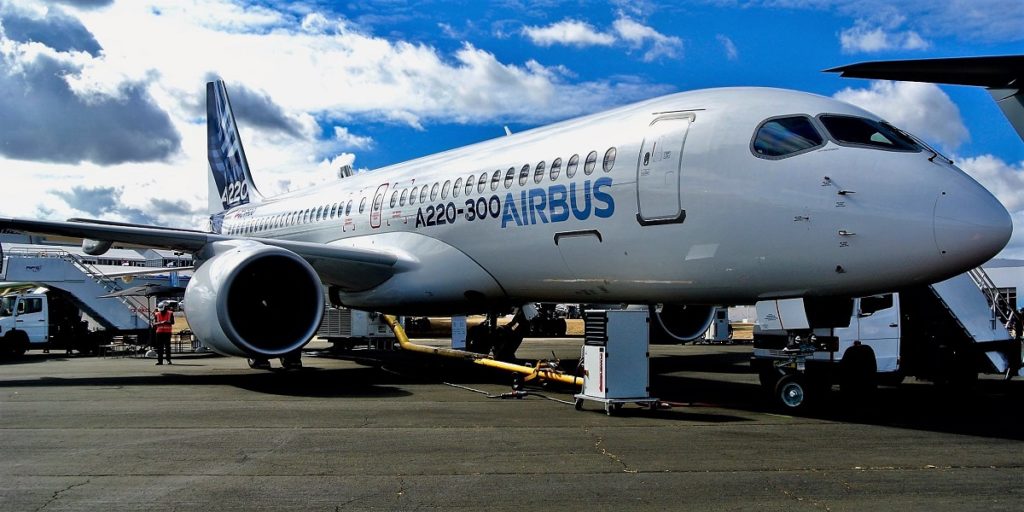
Momentum continues to build in Alabama’s aerospace industry, which is adding new investments and hundreds of jobs to produce innovative, in-demand products in communities across the state. In 2017 alone, there were announcements totaling nearly $690 million and 1,750 jobs. Those numbers increased the sector’s cumulative investment over the past seven years to almost $2.4 billion, along with 8,348 aerospace and defense jobs during the same time period. This year, there’s a hiring surge, as the plans become reality. And more jobs are on the way. At last week’s Farnborough International Airshow, defense contractor BAE Systems and Carpenter Technology Corp., a maker of premium metals and alloys used in the aerospace industry, announced expansions of their Alabama operations. Together, these projects will create more than 250 jobs in north Alabama. Meanwhile, growth plans are already in place for aerospace companies operating across the state. Airbus’ Alabama factory, for instance, is in linefor 600 new jobs, thanks to a planned second assembly line for the Bombardier C Series jetliner (renamed the A220), as well as a potential increase in the production of A320 Family aircraft. GE Aviation plans to double its 90-member Huntsville workforce in the coming year and increase to 300 when the new factory complex for silicon carbide materials reaches full production. The company is also adding workers at its Auburn facility, which mass produces a jet engine fuel nozzle using additive manufacturing, or 3-D printing technologies. Targeting growth Aerospace companies from around the world are seeing that Alabama offers plenty of advantages to help them expand their business, said Greg Canfield, secretary of the Alabama Department of Commerce. “From complex military weapons systems to innovative passenger aircraft, and many of the break-through technologies that power them all, Alabama is home to an impressive array of the industry’s leading products,” Canfield said. “How do we do it? In Alabama, we take partnerships very seriously. A company’s strategic vision and expertise, coupled with the skill and dedication of our highly trained workforce, is always a winning combination.” Canfield joined Gov. Kay Ivey and an Alabama team at Farnborough for appointments with executives of 16 aerospace companies, including Airbus, Boeing, Leonardo and GE Aviation. The talks were aimed at bringing home new investment and jobs in the aerospace sector. Aerojet Rocketdyne One of last year’s key announcements was Aerojet Rocketdyne’s $46.5 million, 800-job expansion project in Huntsville. The company is consolidating its Defense division headquarters and Rocket Shop advanced programs to the Rocket City, where it has had a presence for more than 50 years. It has also moved into a new office space at Cummings Research Park and is building a new Advanced Manufacturing Facility that will produce subassemblies and components for the AR1 rocket engine, composite cases for rocket motors, 3-D printed rocket engine components and other parts. James Ramseier, site leader for operations at the Huntsville Advanced Manufacturing Facility, said construction is about 60 percent complete and right on schedule. “We plan on opening that facility in December of 2018, and initially in 2019, we are going to go through product verification. In 2020, we will ramp up to full production,” he said. Ramseier said everyone in Huntsville, from major business groups to individual building inspectors, has been supportive and welcoming. “The culture here is, ‘Let’s all work together to help make you successful,’” he said. “It’s a pleasure working in an environment where people want you to succeed. “You don’t feel like a stranger. As soon as you move here, you’re part of the family.” Aerojet Rocketdyne’s hiring plans are moving forward as well, with support from Alabama’s top worker training agency. “AIDT is fantastic. We’re working with them every week on developing our training plans and material, and they have been outstanding to work with,” Ramseier said. Forging partnerships The company is also impressed with the ties between business and education in the community, said Bill Bigelow, chief of defense communications. “The partnerships here are very attractive to us,” he said. “We’re growing the future workforce, as we grow our presence here in Huntsville, partnering with Alabama A&M University, the University of Alabama in Huntsville and other area educational institutions, as well as the chamber of commerce and the mayor’s office.” Bigelow said the Tennessee Valley is clearly committed to bringing in the types of jobs and training programs that will grow a generational workforce. “The knowledge and the history in all things aerospace, missile-defense and industrial base operations is here, and Aerojet Rocketdyne wants to leverage that community expertise both now and well into the future,” he said. Republished with the permission of the Alabama Newscenter.
Alabama officials welcome Airbus-Bombardier partnership plan
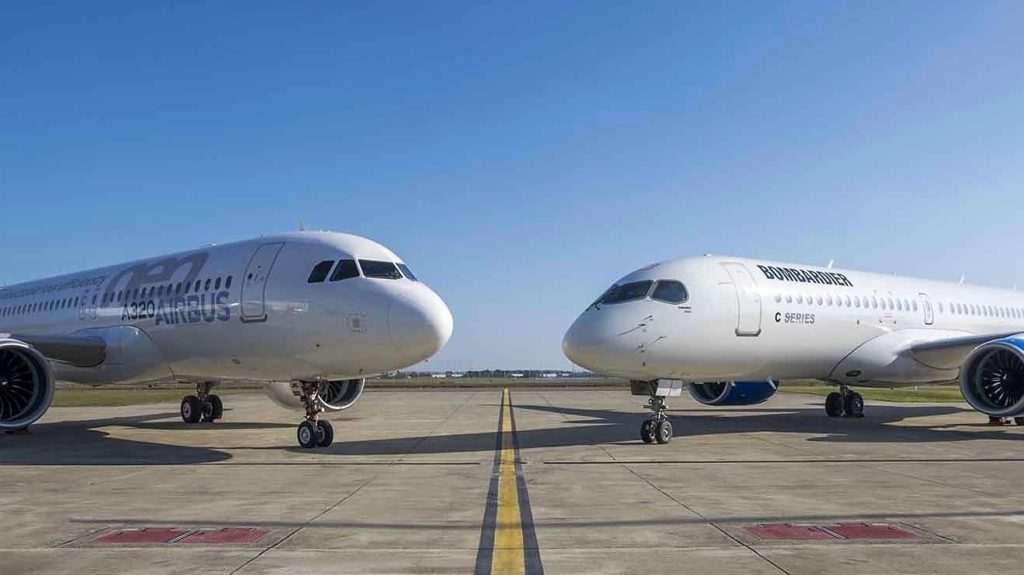
Alabama officials today congratulated Airbus and Bombardier on making significant progress toward the completion of a partnership deal that could see the companies establish a new assembly line for Bombardier’s C Series passenger jets at Airbus’ Mobile facility. Aerospace giant Airbus and Canadian aircraft maker Bombardier this morning said they have received all necessary regulatory approvals for a transaction that will give Airbus majority ownership in the C Series partnership. The deal is expected to close July 1. In the announcement, the companies said increased demand for C Series aircraft is expected to support the creation of a second assembly line at the Airbus facility in Mobile. That echoes earlier statements from company executives about plans for a possible new Alabama assembly line. Gov. Kay Ivey said Alabama is ready to support the plans to expand aircraft production at Airbus’ manufacturing center in Mobile. “The alliance between these two great aircraft manufacturers and the future production of C Series passenger jets in Mobile underscore the strength of Alabama’s aerospace industry and our skilled workforce,” Ivey said. “Alabamians take pride in their work, and we look forward to adding the C Series aircraft to the world-class products that are made with care in Sweet Home Alabama.” Accelerating growth Greg Canfield, secretary of the Alabama Department of Commerce, said the completion of the C Series partnership has the potential to turn Mobile into a major global production center for aircraft. “These plans represent a powerful testament to the partnership between Airbus and its U.S. industrial home in Alabama,” Canfield added. “This development is a win-win for Airbus and Bombardier, and it will accelerate growth in Alabama’s high-flying aerospace sector.” Airbus launched production of A320 family aircraft at the Mobile manufacturing facility in 2015. The $600 million complex now produces four aircraft a month and employs more than 400 people. “All of us at Airbus are excited to welcome the employees of the C Series Aircraft Limited Partnership into the extended Airbus team, and to welcome the C Series aircraft to Airbus’ product offerings beginning July 1. It will also be exciting to see us grow further in Mobile,” said Kristi Tucker, spokesperson for Airbus. Officials at the Mobile Area Chamber of Commerce cheered the news. “Additional capacity has always been a goal of our economic development team,” said David Rodgers, vice president of economic development for the Mobile Area Chamber. “Since the initial Airbus FAL (final assembly line) opened in 2015, more than 20 aerospace companies have located to Mobile. We’re looking forward to continuing to see additional investment here, as we work to grow our aerospace cluster.” The Airbus-Bombardier alliance was originally announced in October 2017. Republished with the permission of the Alabama Newscenter.
Allegiant Air buys its first Alabama-built jet
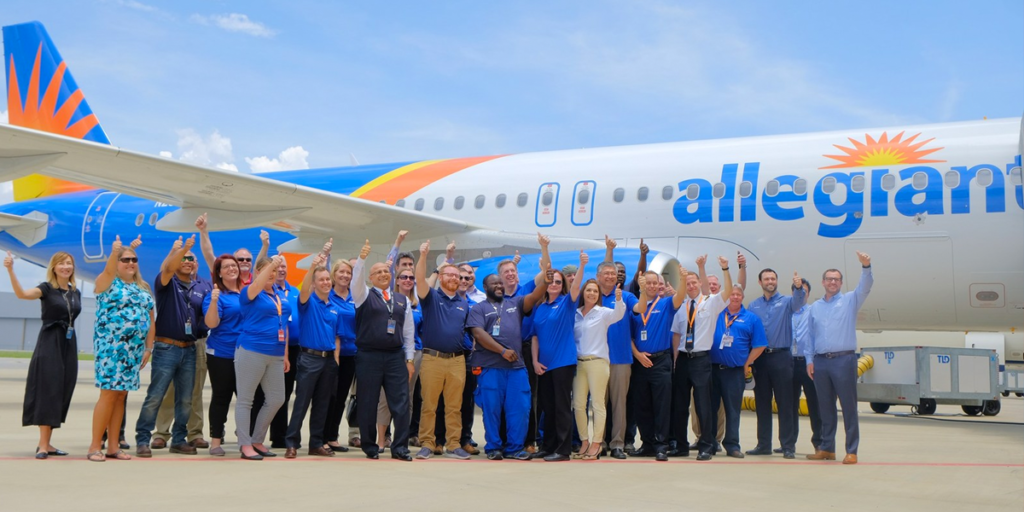
A budget airline serving destinations across the United States bought its first Alabama-built A320 last Tuesday. A team of Allegiant Air employees and executives from the company’s headquarters in Las Vegas joined Airbus’ leadership team at the Airbus U.S. Manufacturing Facility in Mobile, Ala. for a special ceremony to officially mark the delivery of the aircraft. Allegiant Air is currently transitioning to an all-Airbus fleet — the aircraft was the the 11th of 13 new A320 aircraft scheduled for purchase directly from Airbus, to be inducted into Allegiant’s fleet this year. Previously inducted aircraft have been assembled in Airbus facilities in Toulouse, France and Hamburg, Germany. “It’s exciting to see the progress we’ve made in our transition to an all-Airbus fleet, and gratifying to be able to celebrate this special milestone with team members whose hard work and dedication have made it possible,” said Maury Gallagher, Allegiant president and CEO. “Operating a single fleet type will increase efficiency in teams across the company – including training, scheduling, and maintenance – while bringing economic benefits like greater fuel efficiency and additional seat capacity. Since we began, Allegiant has flown more than 80 million passengers, and our transition to a streamlined fleet will allow us to continue offering increasingly reliable, convenient travel at industry-low fares to our next 80 million.” Allegiant currently has a total of 99 Airbus aircraft either in service or committed for future delivery. “Airbus is committed to developing and producing fuel-efficient, passenger-friendly aircraft that are leaders in the evolving airline marketplace,” added Bob Lekites, Executive Vice President-Customers, Airbus Americas. “Our partnership with Allegiant Air, coupled with our commitment to producing innovative aircraft, has allowed Allegiant to expand their ultra-low cost consumer flight options. We are proud to deliver Allegiant their first Airbus aircraft manufactured in Mobile, and we look forward to providing them more aircraft that exceed customer expectations.”
Woman of Influence: Leigh Hixon, Senior Director Alabama Policy Institute

Leigh Hixon has been making waves since her college days at Auburn University. Spending a majority of her career in fields dominated by men, Hixon wasted no time in making sure her voice was heard, and her ideas executed. She grew up in Saraland, Ala. and graduated from Auburn University in 2008 with a Bachelors of Arts in Political Science and Government. When asked what influenced her to pursue a career in government and policy, Hixon responded; “When I was a student at Auburn University, I led the SGA’s Lobby Board and helped to create an organization for freshman to get involved in government and politics on campus.” “I brought legislators to campus and shuttled hundreds of students to Montgomery for higher education lobbying days over the years. Just as I believed then it was important for students to have their voices heard in Montgomery, I still believe it is important to stay actively engaged in political debate,” said Hixon. In January of 2009 Hixon went on to work as a Scheduler for a member of the Alabama delegation in the U.S. House of Representatives and stayed on the Hill until January 2012; when she shifted her career from government to the private sector. Hixon began working in Government Relations at Airbus, “Navigating an unknown industry, aerospace and defense, it was important to prove not only to myself, but to my colleagues, that I had an ability to quickly build the knowledge base and skill set to succeed,” explained Hixon. And succeed she did. By identify stakeholders and investment opportunities for Airbus, Hixon guaranteed long-term success for the organization. In 2016 she made an even greater leap — moving to New York City and working at The Nasdaq Stock Market. There she advised, managed, and built relationships between Nasdaq’s CEO and executive team and executives of Nasdaq-listed companies and prospects, and worked with Adena Friedman, the first woman to ever become CEO of a major U.S. stock exchange operator. In 2017 Hixon made the decision to return to her policy roots, and headed back home to the Yellowhammer state to take a position as the Senior Director of Policy Relations for the Alabama Policy Institute. For the past year she has worked in Birmingham, and across the state, leading a team of professionals who provide in-depth research and analysis of Alabama’s public policy issues. Hixon is a woman of high-calibre, and displays an amount of strength and ambition that many young women hope to one day obtain. She was kind enough to answer some of our questions on her work, influences, and how she gained those qualities: How have other women influenced your success? For much of my professional career, I have predominately worked in male-dominated industries: policy, aerospace, and fin-tech. I owe a great deal of gratitude to the female trailblazers and mentors who empowered, challenged, and supported me early in my career, and to countless male colleagues who embraced equality in the workplace. It is true that it’s important to surround yourself with people who believe in you and your abilities. One of my former managers on Capitol Hill, and a mentor to this day, cheered me when I told her I was leaving the office to pursue a more challenging role off the Hill. Her words still ring true to me today: always set the highest expectations for yourself and use your self-confidence to motivate and inspire others. One female trailblazer purposefully helped me identify my strengths and weaknesses. We worked through the StrengthsFinder, a performance assessment to identify my natural talents. Pinpointing those strengths, I was then able to develop a skill set which enabled me to identify stakeholders and invest in opportunities that ensured profitable, long-term growth and success for the company. I had the privilege of working with the first female CEO of a U.S. stock exchange. She would say stop with the timid voice. Assert yourself into conversations, and you will be heard. This was a tough habit to break for a girl growing up in Alabama, but I intentionally stopped always replying with a “Yes, Sir”, “Yes, Ma’am”, “No, Sir”, “No, Ma’am”, and use other pleasantries or assurances to respond in certain conversations, instead. Don’t get me wrong, I have and will always respect my elders and those with honorable distinctions. But in casual conversation, by constantly saying “Yes, Sir” “No, Sir” to my male peers, I felt as though I was putting myself at a disadvantage and lowering my ability to “compete” on an equal playing field. I prefer to use other pleasantries to convey respect, removing any attempt to deference my role or abilities in conversation. What has been your favorite area of service, and what is your favorite thing about that position? Throughout my career I have demonstrated an ability to work effectively with others. It is my goal and mission to help build up the next generation of conservative leaders in Alabama, while identifying policies that are good for our state and working with others to find opportunities for change. I enjoy working in a results-oriented and demanding environment with a group of driven people. (I’m listing out here because I can’t choose just one.) Compassion for the less fortunate and a desire to help those in need Grit for the long days, when all seems to be against you, and the will power to persevere Faith in God, my husband and family; reliability and loyalty to my friends and my career Keeping an open mind, because as they say, your brain is not going to fall out. What advice would you give to young women who want to work with policy or government relations? Coming back to Alabama after almost ten years, I have learned the unfortunate truth that progress in policy is slow. Stay motivated and focused. No matter how difficult the challenge, the right team and a good attitude can overcome any obstacle. Having a positive mindset is the first step to taking on any career path, and
GE Aviation managers in growing Alabama plant share training duties
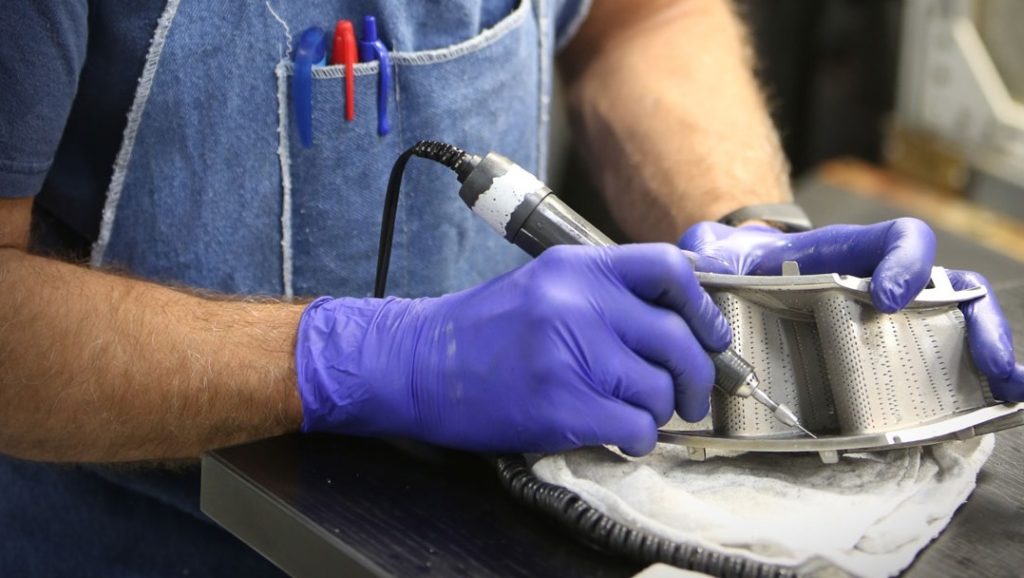
Joseph Moore works days on the shop floor at GE Aviation’s fast-growing jet engine factory in Auburn – then teaches his experiences at night in the classroom. He’s one of several operations managers at GE’s Auburn site with a teaching role during the month-long vocational training sessions at Southern Union State Community College near Auburn to prepare GE’s growing roster of hourly workers About four sessions are held annually to handle the demand for more trained workers in the GE Auburn factory. In addition to the Southern Union instructors, the program includes Moore and his GE colleagues each leading a three-hour evening of instruction each week. “I really enjoy the interaction,” said Moore, who teaches lean manufacturing, Six Sigma quality practices and compliance. “Being part of the training also allows us to get a good look at the people we are evaluating for positions at the plant.” The close cooperation between GE Aviation, Southern Union and the Alabama Department of Commerce is another example of GE Aviation preparing workers for the skill sets required in its new modern factories across the U.S. “Alabama has long been a leader in workforce development, and it’s critical that we partner with industry leaders like GE Aviation to develop cutting-edge training programs like this one,” said Ed Castile, director of AIDT and deputy secretary of the Alabama Department of Commerce. “With new technologies rapidly changing how factories and other workplaces operate, our workers must be equipped with the in-demand skills to succeed in the future.” GE’s Auburn facility uses sophisticated equipment to machine advanced turbine airfoils and structural components for jet engines. Machine operators vying for positions are first trained at Southern Union with a curriculum developed by the Commerce Department’s AIDT division and by local GE plant leaders. GE Auburn produces components for the fastest-selling jet engine in commercial aviation history, the “LEAP” engine for CFM International, the 50/50 joint company of GE and Safran Aircraft Engines of France.GE is actively involved in the training process because GE Auburn is ramping up fast. Employment reached 200 people in March and is expected to grow to 280 by year’s end, according to plant manager Ricardo Acevedo. More than 14,000 LEAP engines are on back order to power three airplanes: the Airbus A320neo (soon to be made in Alabama), Boeing737 MAX and China’s COMAC C919. The Airbus and Boeing airplanes are now in airline service. The GE and Safran factories delivered 459 LEAP engines in 2017. The LEAP delivery goal is up to 1,200 engines for 2018 and in the 1,800-engine range in 2019. In addition to machining parts, the Auburn site this year will produce more than 34,000 fuel nozzle injectors for the LEAP engine using additive manufacturing machines. Auburn’s 37 additive machines is expected to grow to 45 by midyear to handle the needed higher volume. These employees require six weeks of in-house training. GE is looking at ways to engage the local community colleges in offering additive manufacturing as part of their curriculum. GE Aviation is also engaging with engineering students at Auburn University in additive manufacturing projects as part of a groundbreaking partnership. ‘Great careers’ Training for GE’s Auburn employees is not limited to community college classes. The plant also offers training in non-destructive testing in which employees become certified to evaluate jet engine components scanned in advanced X-ray machines. “There’s a skills shortage in this field,” said Tory Landry, the plant’s human relations leader. “It’s hard to find the people. We offer in-house training to candidates who can then experience a significant pay increase.” Among the factors Acevedo attributes to high retention at the plant is the GE investment in training. “There are great careers in advanced manufacturing,” he said. Over the past decade, GE Aviation has opened eight new facilities in the United States, including the new factory in Auburn and a $200 million advanced materials production center in Huntsville. Republished with the permission of Alabama Newscenter.
Bombardier ascending on turnaround that includes plans for Alabama plant
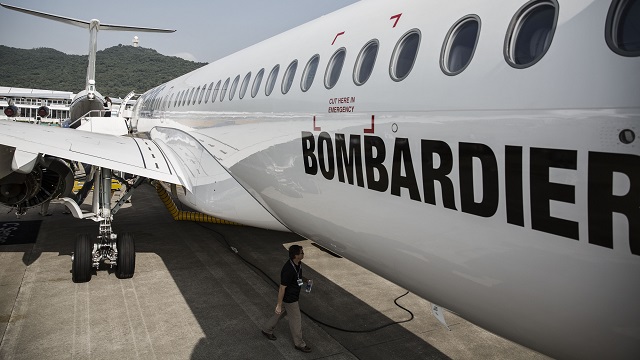
Bombardier Inc. climbed after the highest cash flow in seven years bolstered prospects for the company’s turnaround plan. Free cash flow increased 76 percent to $872 million in the fourth quarter, Canada’s biggest aerospace company said Thursday as it reported earnings. That exceeded analysts’ expectations for the closely watched figure. The improving results underscore progress under Chief Executive Officer Alain Bellemare after two aircraft-development programs left Bombardier awash in debt. Having shored up liquidity, cut thousands of jobs and agreed to team with Airbus SE on the C Series jetliner, Bellemare now is working to push the company’s next big revenue generator — the Global 7000 business jet — into service late this year. The earnings report was “well ahead of expectations across all segments,” Fadi Chamoun, a BMO Capital Markets analyst, said in a note to clients. “We sense there is greater demand momentum in business aviation and opportunities for growth beyond what is currently reflected in our forecast.” Exceeding expectations Bombardier’s free cash flow topped the $662 million average of analyst estimates compiled by Bloomberg. It was the highest for a fourth quarter since fiscal 2011. “We are moving out of our investment cycle and into a strong growth cycle,” Bellemare said in the statement. “Our focus is on flawless execution: bringing the Global 7000 into service; delivering on our major rail projects; and closing the Airbus partnership.’’ Adjusted earnings were 2 cents a share, exceeding expectations that the company would break even. Sales climbed 7.6 percent to $4.72 billion. Analysts had projected $4.75 billion. Revenue is set to rise in all divisions in 2018, Bombardier said. The Montreal-based company makes trains and aircraft parts in addition to planes. For all of 2017, Bombardier burned through $786 million in cash, better than the $1 billion that the company had expected to use. That meant ending the year with a $3.1 billion cash balance, leaving the company “well positioned’’ to break even on a cash-flow basis this year — a goal of Bellemare’s turnaround plan ‘Clear path’ Bombardier sees “a clear path” to annual cash generation of $750 million to $1 billion by 2020, according to a presentation on the company’s website. The company got an unexpected boost last month when the U.S. International Trade Commission ruled that imports of the C Series don’t harm American companies and workers. Boeing Co. had accused Bombardier of selling its biggest jet in the U.S. at less than fair value, while benefiting from unfair government subsidies. Shipments of C Series planes to Delta Air Lines Inc. will probably begin this year from Bombardier’s Mirabel, Quebec, facility, Bellemare said Thursday. The carrier has expressed a preference for U.S.-made aircraft. Alabama plant The trade commission’s decision gives Bombardier “flexibility to ship the aircraft out of Mirabel to Delta. At this stage, we have to work through the logistics of it,” Bellemare said. Bombardier remains committed to building a plant in the U.S. next to an existing Airbus factory in Mobile, he said. Delta spokesman Morgan Durrant said the airline intends to take as many deliveries as possible from the new Alabama facility. “However, as the ITC notes, we have contractual commitments to begin taking deliveries later this year, and the ITC decision clears the way for Delta to accept deliveries in Canada as well,” he said by email. “We are evaluating how to best match Bombardier’s production capacities with our fleet needs.” Separately, Bombardier said it now holds 72.5 percent of its rail business, up from 70 percent. The unit’s 2017 results, which included a 13 percent jump in revenue, outpaced the performance targets in the company’s agreement with Caisse de Depot et Placement du Quebec, which owns the rest of the division, Bombardier said. Republished with permission from the Alabama NewsCenter.
Airbus mulls raising output of jet built in Alabama as demand soars
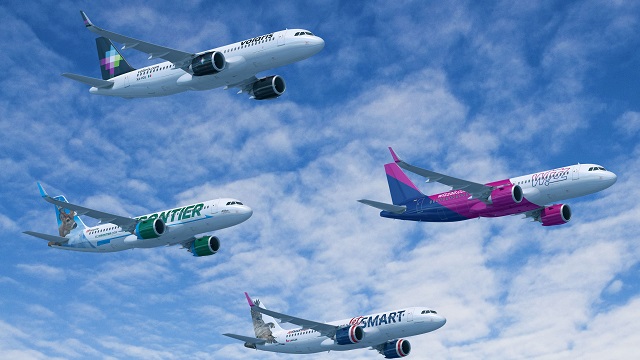
Airbus SE is considering increasing production rates for its best-selling single-aisle A320 jetliners, as airlines around the world place orders for hundreds of planes to meet surging demand for air travel. “The success of the products is forcing us to look at any opportunities we can have to improve the rate,” Eric Schulz, Airbus’s new sales chief, said at the Singapore Airshow on Tuesday. “We have not come to any conclusion yet. But this is something we are looking at very, very closely.” Airlines, particularly in Asia, are scrambling to secure aircraft to support the rapid expansion in emerging markets, including China and India, where more and more people are taking to the skies for the first time. The demand has boosted orders for both Airbus’s A320 family of single-aisles as well as Boeing Co.’s 737 — models that form the backbone for short-haul travel. Airbus said previously it aims to produce 60 A320s a month by mid-2019, up from an average of 50 in the first quarter of last year, across production lines in Mobile, France, Germany and China. Outgoing Chief Operating Officer Fabrice Bregier indicated last month that there is enough demand for Airbus to be producing as many as 70 of the aircraft a month, adding that any decision would be left to his successor. Output hurdles Production hurdles that have hindered deliveries of engines for both Airbus and Boeing narrow-bodies have leveled out in recent months, with Schulz saying he was “confident” that the European manufacturer’s supply chain would be able to cope with a higher target. CFM, a joint venture between General Electric Co. and Safran SA, said in January it had been approached by each planemaker about reaching a rate of 70 planes a month. Tight aircraft availability is already hindering deals, including for a possible order of 50 narrow-bodies from India’s Vistara, sources said on Monday. The airline may have to agree to lease some aircraft to bridge the time until it can get new jets off Airbus’s production line. Boeing’s 737 Max is available for delivery only after 2020, the company’s senior vice president for sales in Asia and India, Dinesh Keskar said. The company has already indicated that rates on its narrow-bodies will reach 57 jets a month this year. Asia Pacific is likely to have 3.5 billion airline passengers by 2036, more than doubling the forecast for North America and Europe combined, according to estimates by the International Air Transport Association. Airbus’s Schulz was making his first appearance as sales chief, succeeding industry legend John Leahy, who secured aircraft orders worth more than $1 trillion during his decades-long tenure. Leahy has said he intends to stay on at Airbus to help with the transition. Republished with permission from the Alabama NewsCenter.
Boeing scorns Airbus, Bombardier plan for Alabama facility

Boeing Co. isn’t buying Bombardier Inc.’s assurances that it will build an assembly line in Alabama under a partnership with Airbus SE on the Canadian plane-maker’s marquee jetliner. “Bombardier and Airbus are extremely unlikely ever to actually establish a C Series assembly line in Alabama,” Boeing said in a letter to U.S. Commerce Secretary Wilbur Ross. Plans for the new facility, which would probably be located next to an existing Airbus plant in Mobile, “would make no economic sense,” the Chicago-based company said. The letter, dated Nov. 13, is part of Boeing’s case before U.S. authorities, which are investigating whether duties should be imposed on U.S. sales of the C Series. Boeing accused Bombardier of selling the jet to Delta Air Lines Inc. at “absurdly low prices.” The Commerce Department so far has sided with Boeing, recommending preliminary tariffs of about 300 percent on the narrow-body plane. Airbus agreed last month to take a majority stake in the C Series project, offering the European plane-maker’s marketing and manufacturing expertise in exchange. Executives of both companies have argued that the C Series shouldn’t face duties if it’s assembled in Alabama. U.S.-made parts and components on the C Series already exceed 50 percent, Bombardier Chief Executive Officer Alain Bellemare said Tuesday at an investor conference. Going Mobile Building the C Series facility in Mobile could cost more than $300 million, Bombardier said in a Commerce Department filing dated Nov. 6. Bombardier doesn’t “have enough orders for the C Series to sustain full production” at the company’s existing C Series assembly line in Mirabel, Quebec, “for any appreciable period of time,” Boeing said in its letter. “The only reason to conduct any C Series assembly activities in the United States would be to attempt to circumvent the antidumping and countervailing duties.” Penalties should apply to C Series jets even if a second assembly line is established in the U.S., Boeing said. “Boeing is wrong,” Bombardier spokesman Mike Nadolski said Wednesday by email. “The partnership was motivated by the economic opportunities of collaborating on the C Series. An added benefit of the U.S. assembly facility is that, to the extent U.S trade laws were intended to promote U.S. manufacturing, it achieves that goal and means that U.S. airlines will get a U.S.-made C Series.” U.S. Rep. Bradley Byrne urged the Commerce secretary to support the Airbus-Bombardier venture. The new assembly line in Mobile “will result in hundreds more high-paying, high-skill American jobs,” the Alabama Republican said in a Nov. 13 letter addressed to Ross. The U.S. International Trade Commission is expected to deliver a final ruling early next year on whether Boeing was harmed by the C Series program. If the Washington-based tribunal sides with Boeing, the duties will stay in place for imports of the jets. That would set up the next battle: Whether Airbus-built C Series in Alabama are “made in America.” Republished with permission from the Alabama NewsCenter.
Airbus $50 billion Dubai jet deal will be boost to Mobile assembly line
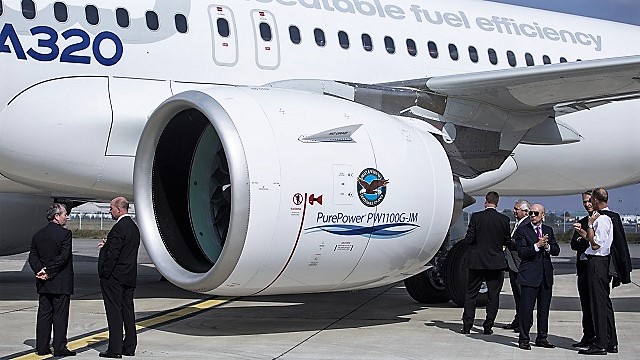
Airbus SE announced the biggest commercial-plane transaction in its history, securing an order for single-aisle aircraft valued at nearly $50 billion at the Dubai Air Show, outdoing Boeing Co.’s own $20 billion mega-deal. Wednesday’s pact for 430 A320neo planes with U.S. investor Indigo Partners marked a turnaround for Airbus at the Gulf expo, where it had been trailing its rival. It’s also a crowning achievement for sales chief John Leahy, who is set to retire after a career in which he has struck deals for more than 16,000 jets and lifted the European plane-maker into a duopoly position with Boeing. For Indigo Partners, led by Bill Franke, the Airbus accord provides upgraded narrow-body aircraft to boost the fleets of low-cost carriers from Denver to Budapest. The planes will go to four companies in Indigo’s investment portfolio: Frontier Airlines, Mexico’s Volaris, East European operator Wizz Air Holdings Plc and Chile’s JetSmart, which began operating this year. The deal features 273 A320neo jets together with 157 of the larger A321neo variant and is worth $49.5 billion before customary discounts, Airbus said. Leahy, 67, called the transaction “remarkable,” while Franke, 80, who co-founded Indigo in 2002, said it underscores his confidence in the A320 and the bargain fares, no-frills travel model he helped develop. Airbus makes the A320 family at different sites around the world, including its main factory in Toulouse, France, as well as in Hamburg, Germany. The company also builds the plane at an assembly line in China, and has recently pushed into the U.S. with a plant in Mobile. Boeing retort Boeing recovered some ground with the sale of 175 737 Max planes, the A320’s main competitor, to FlyDubai, a deal big enough to have dominated most air shows. While that order will come as an irritation for Airbus, with the airline having been expected to split it between the two manufacturers, the Toulouse, France-based company wasn’t done at the Dubai event. It went on to announce EgyptAir Airlines Co. as the operator of 15 A320neos previously ordered by leasing firm AerCap Holdings NV. The Indigo deal more than doubles Airbus’s previous order book for the year, which stood at about 290 aircraft as of Oct. 31, pushes the plane-maker’s backlog above 7,000 jets and reverses expectations that orders will trail deliveries in 2017. The haul will help Airbus catch up to Boeing in the order tally this year, with the European plane-maker having chalked up 343 contracts at the end of October, compared with 690 for its Chicago-based rival as of Nov. 7. The order also trumps a 2015 deal for 250 single-aisle jets worth $27 billion by Indian budget carrier IndiGo. The two companies aren’t related. Click here to read more. Republished with permission from the Alabama NewsCenter.
Airbus to add Bombardier C-Series jet production line in Mobile
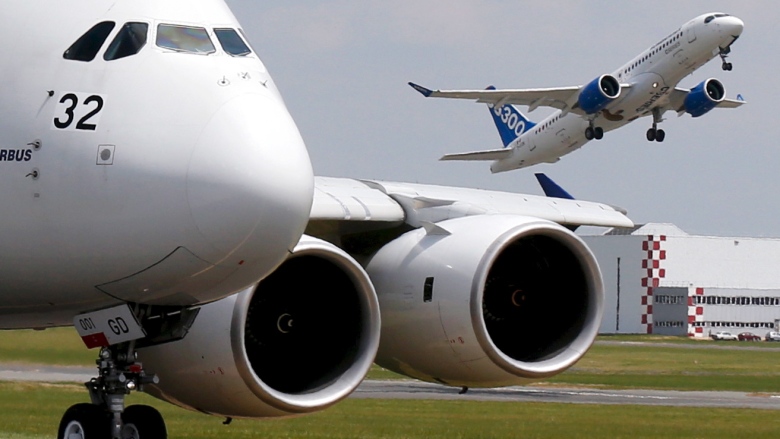
European aerospace firm Airbus announced a new partnership with Canadian aircraft producer Bombardier Monday evening that will bring assembly of Bombardier’s C-Series passenger jets to the Airbus manufacturing facility in Mobile, Ala. Under the partnership, Airbus will acquire a 50.1 percent controlling stake in the C-Series production, a single-aisle plane typically seating 100 to 150 passengers “This is a win-win for everybody! The C Series, with its state-of-the-art design and great economics, is a great fit with our existing single-aisle aircraft family and rapidly extends our product offering into a fast growing market sector. I have no doubt that our partnership with Bombardier will boost sales and the value of this programme tremendously,” said Airbus Chief Executive Officer Tom Enders. “Not only will this partnership secure the C Series and its industrial operations in Canada, the U.K. and China, but we also bring new jobs to the U.S.” Airbus announced it will also add another final assembly line for the C-Series at its factory in Mobile. The European aircraft giant first set up shop in Alabama in 2015. “This is another great testament to the partnership between Airbus and its U.S industrial home in Mobile and Alabama,” said Greg Canfield, secretary of the Alabama Department of Commerce. “This is a win-win for Airbus and Bombardier, as well as a positive development for Alabama’s prime trade partners in Canada and Québec.” While details of the Mobile expansion have yet to be released, Mobile Mayor Sandy Stimpson celebrated the Monday-night announcement on Facebook. ”There is no greater example of confidence than when a company of Airbus’ caliber decides to reinvest in Mobile. Not only will this new development increase jobs, but it will diversify the manufacturing operations at Brookley. Mobile is open for business!” Stimpson wrote in a post. Alabama 1st District U.S. Rep. Bradley Byrne, who represents Mobile, also celebrated the news. “Tonight’s announcement from Airbus is a testament to the first-class workforce in Southwest Alabama and our pro-business culture. I want to share my deep appreciation with Airbus for their continued investment in Mobile and our community. This announcement is yet another step toward our region becoming a national and global hub for aviation excellence.”
Airbus achieves a global first with Mobile production of its A320
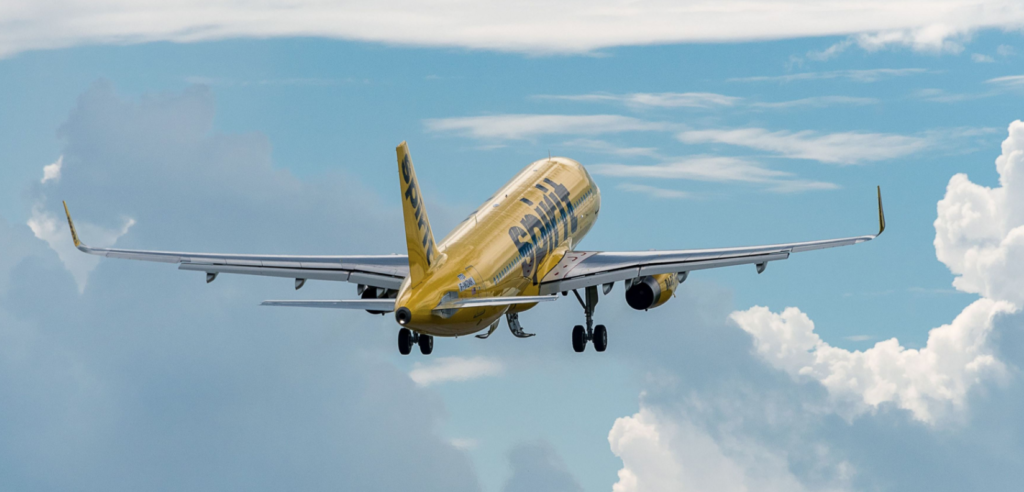
With little fanfare, Airbus SE is about to mark an unusual milestone in aviation: simultaneous production of the same aircraft on three continents. The company will hand over the first A320 to roll out of its Mobile assembly plant on Aug. 25, meaning North America will join Europe and Asia in producing the most popular airliner in the world. The Alabama facility opened in 2015 and has thus far produced three dozen of Airbus’ larger A321s. The first U.S.-built A320 will be handed over Friday to Spirit Airlines Inc., which has ordered 98 of the planes. By year’s end, Airbus plans to reach a production rate of four aircraft per month at the Mobile facility. “The sun never sets on Airbus manufacturing!” company spokeswoman Mary Anne Greczyn wrote in an email. “Internationalization, coming closer to our customers, and a global industrial footprint are part of our overall strategy.” Airbus opened its first assembly plant outside Europe in 2008 in Tianjin, China, where it produces A319s and A320s; European A320 production takes place in Toulouse, France. The European company is also building a completion center in Tianjin for wide-body A330 models. The single-aisle A320 is the middle model in the Airbus family of jets favored for shorter domestic flights. The classic and new engine option (neo) versions, combined, are the company’s best-selling commercial aircraft, with a total of 8,421 orders, including a backlog of more than 3,800 as of July 31. Operations in China Chicago-based Boeing’s three aircraft assembly plants are all in the U.S., although the company broke ground in May on an interiors-completion center near Shanghai for 737 Max aircraft destined for China – which is seen as the largest source of aviation growth for the next 20 years. The 737 is Boeing’s best-selling and most profitable model, a direct competitor to the A320. When Boeing’s Chinese facility opens next year, 737 Max planes will be flown there for such final touches as seats, paint and carpet. “It’s stapling carpet, basically,” Richard Aboulafia, an aerospace analyst at Teal Group, said of Boeing’s China operation. “Up until Airbus, everyone that had moved a production line to China … regretted it almost instantly. And then Airbus stepped up to the plate and, strangely, got it right.” Before Airbus, the business of assembling aircraft in China has been financially fraught, with sales generally weak, he said. Last year, Brazilian manufacturer Embraer SA dissolved its Chinese joint venture, Harbin Embraer Aircraft Industry. Over 12 years, the firm produced 50-seat Embraer regional jets and several Legacy 650 business jets in China. In the late 1980s, McDonnell Douglas moved some of its single-aisle MD-80 and MD-90 aircraft production to China, but encountered weak sales and had to ship some planes back to U.S. customers, Aboulafia said. Boeing forecasts that the Asia-Pacific region will purchase more than 15,000 of the almost 40,000 new aircraft it foresees as global demand through 2035. The Asia market will need almost twice the number of airplanes as will be sold in North America, the No. 2 projected market. Boeing is about to increase its monthly 737 production to 47, from 42, and to 50 by the end of the decade to keep pace with surging demand. But Aboulafia says the company will almost certainly forgo any significant assembly work in Asia, a tactic other companies have used to boost Chinese sales. “I don’t think they think it’s worth it,” he said. “They’ve had fantastic success selling the 737 Max over there.” Republished with permission of Alabama NewsCenter.
Alabama connections on display at 2017 Paris Air Show

The 2017 Paris Air Show is ground zero for the aerospace industry, a spectacle whose amazing aircraft demonstration flights are eclipsed by the billions of dollars in new deals announced and the behind-the-scenes negotiations that lead to future projects. This year was no different. Boeing and Airbus – global rivals that both have a major presence in Alabama – announced massive aircraft orders. Boeing, in particular, used the air show as a platform to announce more than $30 billion in new orders. In addition, there are plenty of Alabama connections on display at the industry trade event, reflecting the state’s growing stature in the global aerospace business. Airbus, for instance, showed off its A321neo aircraft, a model that will be added to the production lineup at its Mobile manufacturing center. And Raytheon’s exhibition hall displayed SM-3 and SM-6 missiles, which are produced in Huntsville. The fuel-efficient LEAP engine, produced by a partnership that includes GE Aviation, was spotted on Boeing and Airbus aircraft. A 3-D printed fuel nozzle made by GE Aviation in Auburn is an important feature of the engine. In addition, global aerospace and defense company Leonardo displayed its T-100 trainer jet that will be built in Tuskegee if the company wins a U.S. Air Force competition for a next-generation trainer. Massive draw During the Paris Air Show’s three-day trade show phase, an estimated 150,000 visitors were expected. New French president Emmanuel Macron was among them. He visited the European Space Agency Center, where he spoke with astronaut Thomas Pesquet, who has just spent almost 200 days at the International Space Station. As always, the demonstration flights wowed the crowds at Le Bourget. Highlights included flights by the new U.S. F35 fighter jet, the Boeing 737 MAX 9 and Airbus A350-100S, A400M and A380 aircraft. This story originally appeared on the Alabama Department of Commerce’s Made in Alabama website. Republished with permission of Alabama NewsCenter.

